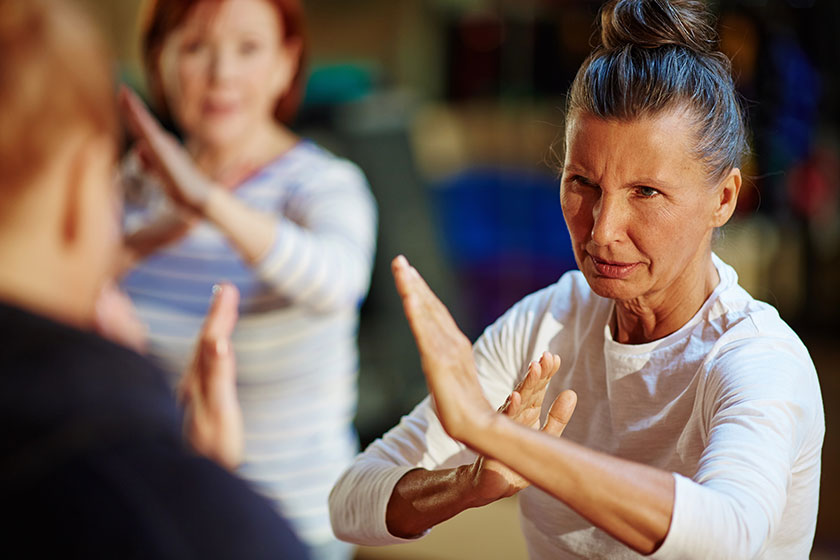As people grow older, maintaining independence and safety becomes increasingly important. One way to empower older adults is through self-defense training. This type of training not only teaches valuable skills to protect against potential threats but also enhances physical fitness and mental resilience. If you are looking for ways to help an older family member stay active and secure, self-defense training for seniors is an effective solution.
Benefits of Physical Fitness
Self-defense training focuses on improving various aspects of physical health. Through a series of controlled movements, the elderly can increase their strength, coordination, and balance. These elements are vital for reducing the risk of falls, which is a common concern among older adults.
Moreover, regular physical activity through self-defense practices keeps muscles strong and joints flexible. This increased mobility helps your loved ones maintain their independence and live healthier lives.
Mental and Emotional Empowerment
Self-defense is not just about physical skills; it builds mental toughness. The elderly who engage in such training develop sharper focus, quicker reaction times, and a strong sense of discipline. These mental benefits can greatly improve their ability to stay calm and make clear decisions in stressful situations.
Additionally, the emotional confidence gained from knowing they can protect themselves is priceless. This sense of empowerment helps reduce feelings of vulnerability, fostering a greater sense of well-being.
Safety Awareness and Prevention
Self-defense training teaches older adults to be more aware of their surroundings. Situational awareness is one of the most important skills anyone can learn to avoid potential dangers. By learning how to assess risky situations and take preventive measures, the elderly can better protect themselves from harm.
Alongside physical techniques, self-defense programs emphasize strategies to de-escalate conflicts before they arise. This makes training a practical tool to make sure that older adults are prepared for various scenarios.
Learning Adaptable Techniques
One of the key advantages of self-defense training for older adults is the adaptability of techniques. Many programs are designed with modifications to suit different physical capabilities. For instance, Cane-Fu is a popular method that uses a cane for both support and self-defense. This allows those with mobility issues to participate fully while learning to defend themselves.
Instructors typically tailor training to the individual, making it accessible to all. Whether through simple hand techniques or more advanced moves, self-defense training accommodates a wide range of abilities.
Social Interaction and Community
Participating in self-defense classes can be a wonderful way for older adults to meet others and build relationships. The group environment fosters camaraderie, as everyone works together to improve their skills and support one another. This can be especially beneficial for older individuals who may feel isolated or lonely.
Through shared learning experiences, your loved ones will develop a sense of belonging and form connections that enrich their social lives. The value of this community aspect extends beyond physical health, contributing to overall happiness and mental well-being.
Gaining Independence and Reducing Anxiety
As people age, maintaining autonomy can be a source of pride. Self-defense training promotes this independence by giving older adults the tools they need to stay safe. The skills learned in these sessions empower them to confidently handle difficult situations, reducing their reliance on others for protection.
Furthermore, knowing how to defend oneself alleviates anxiety. Concerns about personal safety may diminish as family members grow more self-assured in their abilities. This sense of confidence can lead to a more relaxed and fulfilling lifestyle.
How Self-Defense Protects Older Adults
Practical self-defense techniques are designed to be easy to remember and execute, even under pressure. Older adults can learn to defend themselves against common threats, such as purse snatching or home intrusions. Many techniques focus on using an attacker’s momentum against them, requiring less physical strength than one might expect.
The beauty of self-defense is that it provides practical skills that work in real-life situations. Your loved ones can use these methods to disable or escape an assailant, so that they remain safe in unpredictable circumstances.
The Impact of Self-Defense Training on Well-Being
Self-defense training has a lasting impact on both physical and mental health. For older adults, the skills gained from these classes translate into better self-sufficiency, increased confidence, and a stronger sense of community. Encouraging a family member to take part in such training will contribute to their overall well-being.
When your loved ones feel capable of protecting themselves, it leads to a more positive outlook on life. This shift in mindset is one of the most powerful outcomes of self-defense training.
Self-Defense Training: A Path to Safety and Confidence
Incorporating self-defense training into the lives of older adults is an effective way to improve their quality of life. Not only does it offer a way to stay physically fit, but it also builds confidence, promotes independence, and strengthens social bonds. By learning how to protect themselves, your loved ones will feel empowered to live life with greater freedom and peace of mind.






